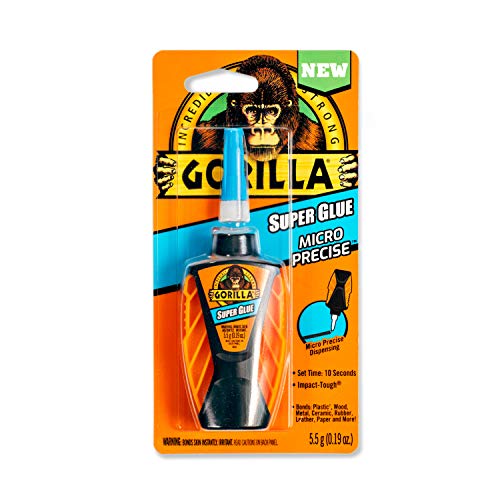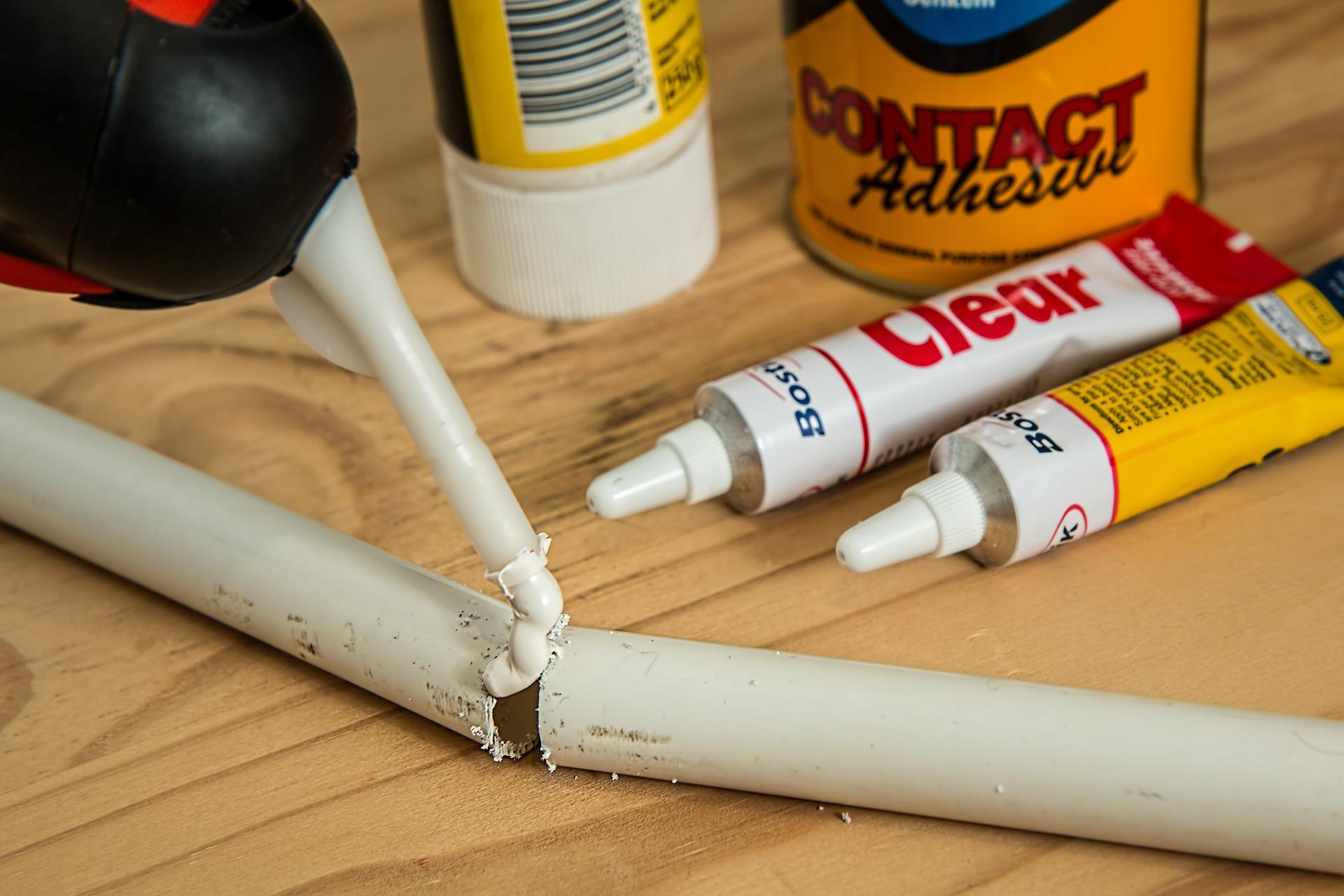Craftsmanship is an art that requires both skill and quality materials. When your crafting needs a lot of bonding, a reliable Super Glue is a must.
Many products are available in the market, but Loctite and Gorilla glues seem to stand out. So now it’s a matter of choosing between them.
In this Loctite vs Gorilla Glue comparison, we’ll talk about both types of glue and demonstrate the similarities, differences, and applications.
| Preview | Product | |
|---|---|---|

|
Loctite Super Glue Ultra Gel Control, Clear Superglue for Plastic, Wood,... | VIEW ON AMAZON |

|
Gorilla Micro Precise Super Glue, 5.5 Gram, Clear, (Pack of 1) | VIEW ON AMAZON |
Loctite Glue
Loctite Glue is one of the most popular glues on the market. Founded in 1954, Loctite has over 50 years of experience in the adhesiveness field.
Loctite glue is mainly for plastic, wood, and metal but it can be used for just about anything. Because of its high resistance to weather conditions, Loctite glue is arguably the best outdoor glue out there.
Loctite is also the prime choice if you need a thread locker. Not only does it lock the bolts in place, but it also prevents oxidation and rusting.
Gorilla Glue
Unlike its rival, Gorilla Glue is relatively new to the field as the company was founded in 1994. That didn’t stop Gorilla Glue from going toe to toe against Loctite, though.
Much like Loctite Glue, you could apply Gorilla Glue on most surfaces and obtain a great adhesion.
Wood adhesion seems to be the main focus of the company and the main reason why many woodworkers prefer it.
Loctite vs Gorilla Glue: Similarities
Here’s where both glue varieties share some similarities:
1. Universal Use
Both Loctite and Gorilla glues are designed for gluing most materials together with various strengths.
The power of the adhesive varies depending on the amount of product you use, the type of product you buy, the method of application, and the texture of the materials you need to glue.
2. Price
Both Loctite and Gorilla glues share a similar price range among their various products.
3. Reliability
There’s a wide range of super glues on the market. The main reason why Loctite and Gorilla glues stand out is reliability.
Despite the difference in strength on various materials (more on that later), both glues offer a superior adhesive ability that surpasses most of the other market products.
4. Waterproofness
Both Loctite and Gorilla glues are waterproof when applied correctly.
It’s important to note that you won’t get the full waterproofness if the glue is subjected to any liquid before it takes 24 hours to completely set.
Loctite vs Gorilla Glue: Differences
Here’s where Loctite and Gorilla differ from each other:
1. Wood Bond Strength
Both glues can bond wood, but it became apparent that Gorilla offers a far stronger adhesive bond to wood than Loctite when applied correctly.
To get the optimum result, you should wait long enough for the Gorilla glue to dry. There are various Gorilla Glue products, but the standard Gorilla Glue requires 20-45 seconds to dry.
Drying in this case doesn’t mean maximum bondage; you need about 24 hours for that.
2. Metal Bond Strength
When it comes to bonding metal, the roles get reversed. Loctite Super Glue Seems to form stronger adhesive layers on polished surfaces like metals.
That’s why it’s the best glue out there for thread locking. Keep in mind that you should wait at least 10 minutes to get such a result.
3. Plastic Bond Strength
Plastic bonding is another field where Loctite Glue is slightly better than Gorilla Glue. You can still use Gorilla Glue and get great results.
Loctite is somewhat better on plastic than Gorilla. On the other hand, using Gorilla Glue on wood will yield a considerably stronger bond than Loctite Glue.
4. Outdoor Usage
When it comes to outdoor usage, the difference in experience sides with Loctite glue.
Surfaces adhered with Loctite glue can resist harsh outdoor conditions like dust, sunlight, snow, and rain. Gorilla glue bonds tend to fail faster when exposed to such weather conditions.
5. Using the Glue
Theoretically, there is no apparent difference between both glues. You simply put the glue where needed, place the two surfaces together, and you’re done.
We can’t say this is wrong, but to get the best adhesion from both glues, you need a slightly different approach for each.
Loctite Glue
Loctite Glue requires a completely dry surface before you apply it. Once applied, you should wait a few minutes to get the initial adhesion.
It’s recommended to clamp your glued surfaces and leave them undisturbed for 24 hours. This will allow the glue to fully set and achieve the best bond it can get.
Gorilla Glue
Unlike Loctite Glue, Gorilla Glue is water-activated. You should slightly dampen the surface before applying it to accelerate the drying process.
Don’t soak the surface in water; just spray some water over the surface before you glue it.
You can get some level of adhesion within 20 minutes which is somewhat slower than Loctite Glue. You should also clamp your surfaces and wait for 24 hours to get the maximum result.
Conclusion
With everything we’ve mentioned, it’s hard to say that one of these two Super Glues triumphed over the other.
We recommend having both of them available as they’re not that expensive to get.
If you have to choose, then check your requirements first. Loctite Glue wins the competition when it comes to outdoor bonding. With its high weather resistance, it should last for a long time before you need to re-glue again (if ever.)
Loctite Glue should also be your choice if most of your bonding surfaces are metal or plastic.
Gorilla Glue is a far better choice if you have a lot of woodwork. If your project requires multiple wood bondings and you don’t want to wait too long between each bond, Gorilla Glue is for you.

